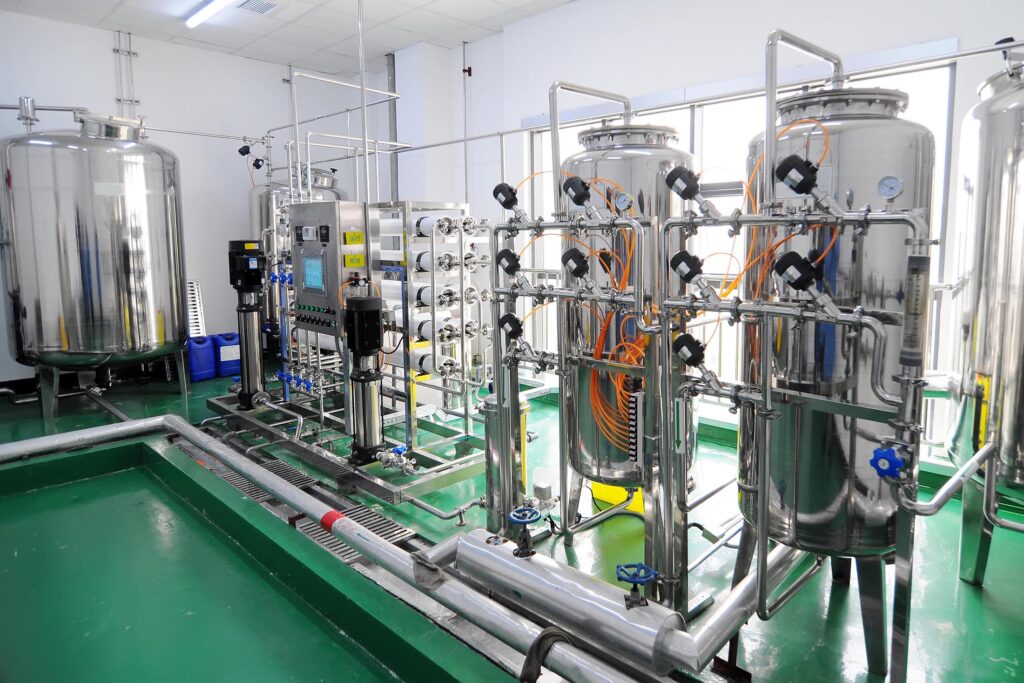Industrial Coatings and Linings for Secondary Containment Systems
If your business works with any materials that have a Safety Data Sheet or could potentially be harmful to people or the environment, you need industrial coatings and linings for secondary containment systems. By creating extra barriers that keep harmful substances contained, we can avoid contaminating our soil, ground water, and surface water.
The Benefits of Protective Linings for Secondary Containment
There are several benefits to using secondary containment coatings such as elastomeric polyurea. The chemical resistance, fast cure times, and high tensile strength and elongation of polyurea make it ideal for many industrial applications where a protective barrier is required. These specialized coatings protect the environment from chemical spills and hazardous pollution, as well as form a protective, impermeable barrier that can help to extend equipment service life. For situations where hazardous chemicals are used inside a working environment, this type of coating can also be used over the facility’s flooring.
Industrial coatings and linings come in a range of thicknesses, ranging from thin-film 15 mils to trowel-applied ¼” surface treatments. These highly chemical resistant polymers systems produce monolithic barriers that are extremely effective in secondary containment trenches, processing floor areas, and tank linings. They are designed to offer extra security for surfaces, substrates, and structures that they respectively cover.
A lining is a thinly applied layer of resin (around 30 – 90 mils thick) that is used to cover the interior surface of a structure. This is frequently done to protect the inside surface, which might be gas, liquid, or solid, with a resin that has better performance than the existing surface.

A coating is typically applied much thicker than a lining, starting at 90 mils and exceeding ⅛ of an inch in some cases, depending on the material it is trying to contain. Industrial coatings are typically used to protect concrete or steel against corrosion, or to improve their resistance to fire or other issues. Polymers such as moisture cure urethane, epoxy, fluoropolymer and polyurethane are commonly used as industrial coatings.
Industrial Coating and Lining Installation
The reason most linings and coatings fail is that the surface is not prepared properly. With decades of experience applying resinous materials for the commercial warehouses and buildings across the nation, Surface Technology takes the necessary steps to get the job done right the first time.
All of our resin installations meet rigorous standards of craftsmanship, design, and aesthetic innovation while providing unmatched durability to withstand impacts and abrasions as well as high chemical resistance.
The Surface Technology installation process includes:
- An initial consultation to assess the scope of the project.
- A custom, detailed proposal.
- Communication with the project manager to schedule installation, deliveries, etc.
- Thorough surface preparation prior to application.
- Coating or lining installation.
- Quality assurance back by our 10-year warranty.
Why Surface Technology Inc.?
Surface Technology is a licensed industrial flooring contractor, able to complete projects in industrial plants anywhere in the United States 24 hours a day, 7 days a week, 365 days a year. Learn more about our quick turnaround services.
We have been recognized by national publications, trade associations, and construction professionals as a performance and quality leader among flooring contractors. We work with facility owners, design-build firms, construction management firms, and general contractors to provide industrial flooring solutions for projects ranging from 1,000 to more than 1,000,000 square feet. Learn more about us.
Get in Touch
We know you’re busy. We’re here to get you the information you need as quickly as possible. Whether you just want a quick estimation on your project specifications or want to talk to an expert about your project, we are here to help you.

